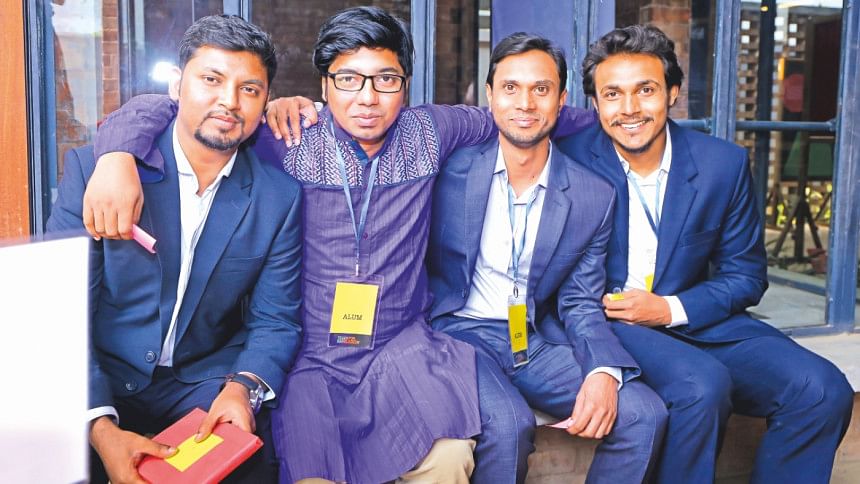Bridging the Rural-Urban Divide in School Leadership

Four urban educators — Al Mansoor Helal, Mahmudul Hassan Tareq, Shahinur Selim, and Hasibur Rahman Sohan, all graduates of leading universities — began their journey as Residents in a one-year programme called the School Leadership Residency, in Panchagarh, run by Teach For Bangladesh, in 2018. The Residency was launched with generous financial and logistical support from Gemcon Group, one of the biggest employers in the region. "We have worked with schools in our community for many years, and always sought to bring some qualitative — not just material — benefit to them. This proved difficult as Panchagarh is not where talented teachers from Dhaka are racing to show up," said K Anis Ahmed, Director and Chief Strategist at Gemcon Group. The Residency programme, he noted, provided a unique solution: "When we were able to bring the Residents to the area and engage them with schools we are connected with, it was a truly exciting and rewarding moment."
The Residents themselves had different motivations for wanting to relocate to Panchagarh, from the thrill of a unique challenge to genuine curiosity about Bangladesh. One thing they share in common, however, is that they all completed the Teach For Bangladesh Fellowship. This is a competitive two-year programme that enabled them to serve as full-time teachers in low-income primary schools in Dhaka and receive deep pedagogical and leadership training, including a post-graduate diploma in Educational Leadership and School Improvement from the Institute of Educational Development at BRAC University. The Fellowship, an urban programme for now, is designed to spur its alumni to work to reduce Bangladesh's staggering educational inequity, building the skills and mindsets that served these four well in their remote placement in Panchagarh.
The Residency programme they joined is the brainchild of Teach For Bangladesh's CEO, Maimuna Ahmad. "The Residency was designed to give urban educators an opportunity they rarely get – to work in deep partnership alongside their rural counterparts," she said. "It broadens their horizons, pushes them, helps them to see a side of the country that urban youth rarely get exposure to. The experience truly transforms their outlook on Bangladesh and what's possible for our country."
The schools for the Residency were quite remote in fact, a stone's throw from the border with India, at the heart of communities that are largely based on agriculture. Adults here focus mainly on farming and children are frequently pulled out of classrooms to help out during harvest time. For Residents, the purpose of this immersive year was to learn about the challenges facing remote schools and the students they serve and then work closely with school leaders to develop professional training programmes for teachers.
Far from the bustle of the capital, the Residents worked with four government primary schools, first immersing themselves in the day-to-day lives of their students and communities and working under the direct guidance of the head teachers in this process. After three months of deep community-immersion and a needs analysis for each institution, Residents spent the next seven to eight months designing and running programmes to support the development of each school's leadership and teaching capacity. The nature of their programmes varied depending on the school's needs but typical areas of focus were classroom management, designing effective lesson plans and developing teaching materials and expertise in two specific subjects, English and math.
The biggest takeaway from the experience, for the Residents, was internal – the way they think about Bangladesh, the growing needs of rural schools and the broader education system that most children access. Each came away inspired by the dedication and hard work of their colleagues in rural schools. Like educators across the country, they found head teachers highly invested in their students and their students' futures but held back by the lack of training, resources, and professional development opportunities. The tragedy, they say, is how little the voices of these educators reach the urban quarters where our most important decisions for schools and children are made.

 For all latest news, follow The Daily Star's Google News channel.
For all latest news, follow The Daily Star's Google News channel. 



Comments